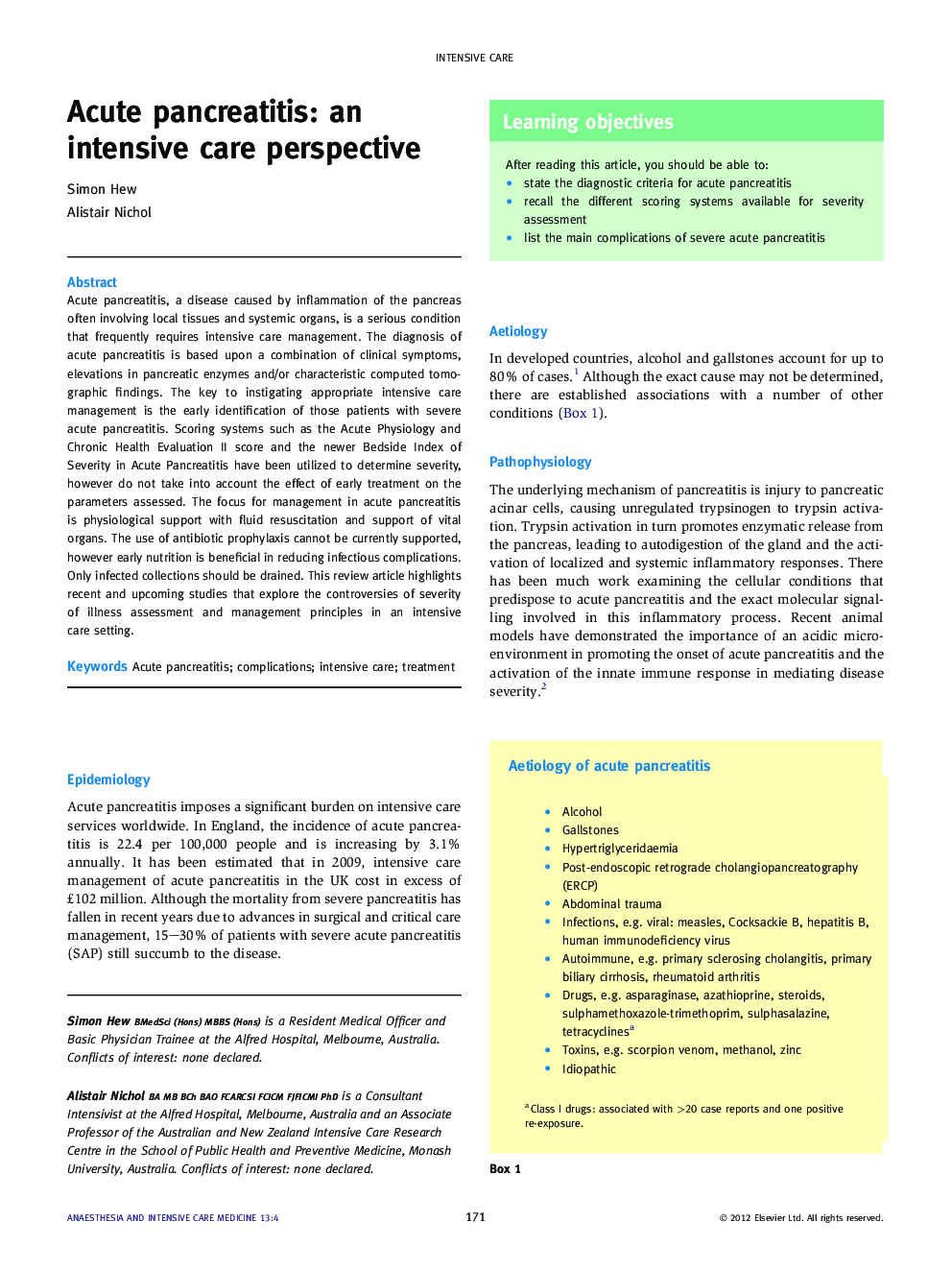| Article ID | Journal | Published Year | Pages | File Type |
|---|---|---|---|---|
| 2743151 | Anaesthesia & Intensive Care Medicine | 2012 | 5 Pages |
Acute pancreatitis, a disease caused by inflammation of the pancreas often involving local tissues and systemic organs, is a serious condition that frequently requires intensive care management. The diagnosis of acute pancreatitis is based upon a combination of clinical symptoms, elevations in pancreatic enzymes and/or characteristic computed tomographic findings. The key to instigating appropriate intensive care management is the early identification of those patients with severe acute pancreatitis. Scoring systems such as the Acute Physiology and Chronic Health Evaluation II score and the newer Bedside Index of Severity in Acute Pancreatitis have been utilized to determine severity, however do not take into account the effect of early treatment on the parameters assessed. The focus for management in acute pancreatitis is physiological support with fluid resuscitation and support of vital organs. The use of antibiotic prophylaxis cannot be currently supported, however early nutrition is beneficial in reducing infectious complications. Only infected collections should be drained. This review article highlights recent and upcoming studies that explore the controversies of severity of illness assessment and management principles in an intensive care setting.
